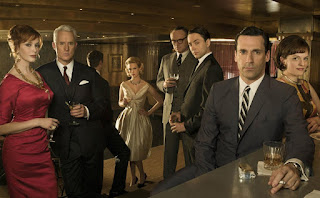I wrote this column almost 30 years ago for The Daily News in Halifax. It seems to suggest that although sexual harassment was widespread, it wasn't yet talked about openly by women, even with one another. I've written here that I was surprised at the widespread incidence of the problem. I had examples in my own work life and knew what my friends had told me but clearly, I didn't yet know everything there was to know.
June, 1990
Last winter, I wrote about the many instances of sexual harassment that seem to be taking place in the universities – most of them having been reported to me firsthand, many of them by women looking for suggestions about what could be done about it.
I confess, I was surprised at the apparent widespread incidence of this frustrating problem and I had no definitive answers or suggestions. I don't today either, although I've concluded that sexual harassment in the workplace is probably just as endemic as it is in the schools.
Sexual harassment is the only legal term defined by women. It was allegedly first used by women working on a case in Ithaca, N.Y. in 1974. Since then, it's become a term that many women who work outside their homes understand very well; many men still have a problem understanding what falls into the category of sexual harassment. They respond to it in different ways.
“It was just a little harmless flirting,” one defence might be. “If they want equality, they better be prepared for life in the real world,” goes another one. “All she needs is a good you-know-what,” is an old favourite. And that old standby, “C'mon, lighten up. Can't you take a joke?”
But even men who take a pro-feminist stance have a hard time dealing with the feelings aroused by sexual harassment. “Unwanted sexual attention” is not a concept that they can easily relate to. That's part of the reason why women who lay complaints about sexual harassment get so little support.
Another reason is that many women have never had any work experience that doesn't involve this kind of atmosphere – as Gloria Steinem once said (approximately), “For many women, what we call sexual harassment is what they call life.”
Still other women have been socialized to believe that sexual banter aimed at them is flattering – and for that reason, they've been willing to ally themselves with the bantering men against those women who are unwilling to tolerate such behavior. The complainers can't attract men themselves, the line goes, and they resent the fact that other women are getting all the sexual attention.
So what can be done, other than quitting school or quitting your job?
One of the important things to remember is that sexual harassment occurs in situations where the balance of power is uneven. It's rare that a woman in a senior position would be harassed by a male assistant. (Of course, it's also rare that you would have a woman in a senior position and a male assistant, isn't it?)
Very often too, the man in the more powerful position has control over the woman's immediate future – whether he is a professor who can withhold marks or a supervisor who can withhold promotions, pay raises, or could jeopardize job security. This makes it risky for women to raise the issue.
And it happens in hallowed university halls and in federal government offices; therefore, it obviously happens everywhere because those are the two locations where it should be least likely.
But without definitive answers, if you were to ask me what to do about sexual harassment, I would tell you to approach the guilty person and tell him how you feel about it. That usually doesn't help so then I would suggest that you determine how much support you have in your classroom/office/plant. Life becomes a lot harder if you find you're fighting this battle all alone.
Do you belong to a union? Does your union have a sexual harassment policy? Would it work on one if the idea were introduced? If you're not unionized, does your workplace have any guidelines of any sort? Is there someone in the organization (in universities, you can go to a sexual harassment counsellor) whose responsibility it is to deal with such cases? Can you recruit the people who seem to support you and hold regular discussions on topics like “dignity in the workplace”?
No matter how you answer these questions, it's important to keep a written record – times, dates, incidents – of the harassment; do it openly, let the guilty party know it's being done.
And read. Get material (through the Advisory Councils on the Status of Women, for example) that will help you understand that this is not an issue of your lack of sense of humour, will help you see the seriousness of this behaviour and how debilitating it can be to all aspects of your life.
And when you do solve it, share your experiences with other women – one at a time or in groups or through relevant publications. When I'm asked, that's my last piece of advice: just keep chipping away.







